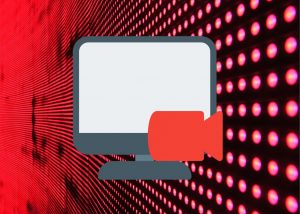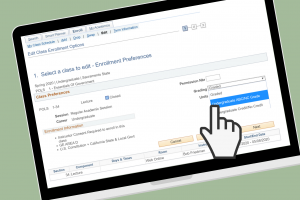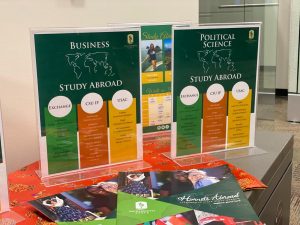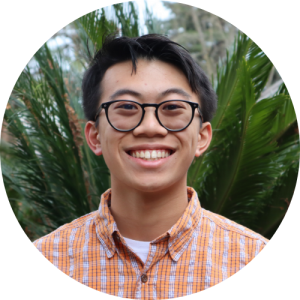Sac State virtual town hall addresses CARES Act, budget, fall semester
Provost and Vice President of Academic Affairs Steve Perez returns to the Zoom call with a frozen copy after disconnecting. Sacramento State President Robert Nelsen and Perez held a virtual town hall meeting with faculty Monday, April 27 addressing faculty concerns. -Screenshot via Zoom
April 27, 2020
Sacramento State President Robert Nelsen and Provost and Vice President of Academic Affairs Steve Perez held a virtual town hall meeting Monday, addressing concerns from faculty regarding the university’s use of funds received from the Coronavirus Aid, Relief, and Economic Security (CARES) Act.
Here are the top five takeaways from the meeting:
1. Sac State to award emergency financial aid grants to students
Nelsen and Perez announced all Title IV students will be awarded emergency financial aid grants.
Students who are eligible to fill out a Free Application for Federal Student Aid (FAFSA) qualify as Title IV students. Doctorate, masters’ and undocumented students will also receive aid, according to Nelsen.
Sac State received over $35 million in emergency federal stimulus funds through the CARES Act with over $17.5 million to be used for student aid. The use of the funds must be instruction-based or for student aid. It cannot be used for athletics, religious purposes or scholarships.
Story continues below tweet.
A Title IV student is anyone who is eligible to fill out FAFSA, @PrezNelsen said. All Title IV students will receive aid. This includes doctorate and masters’ students. @TheStateHornet
— Chris Wong (@ChrisWongWrites) April 27, 2020
Nelsen said qualifying students will receive their aid automatically within one to two weeks. Students should update their address in their My Sac State student center or set up for direct deposit through eRefund.
Nelsen said the amount to be disbursed is still being negotiated.
RELATED: Sac State to award emergency financial aid grants to students
2. All departments asked to consider 10% budget cut
Nelsen and Perez said they are expecting a 10% cut in the budget.
“On campus, every department is being asked to look at a 10% reduction,” Nelsen said.
Nelsen said the university is also expecting an estimated 3% drop in the total number of students. He said they expected more students to drop out because of the coronavirus pandemic, but only 31 students have done so, with another couple hundred inactive on Canvas.
He also said the number of students taking summer courses is up 30%-40% from last year.
Still, Nelsen said they expected $199 million in extra funds to go to the CSU system this year, with Sac State receiving about 6% of the funds or about $12 million — now, they have been told that will not be happening.
Instead, the California Department of Finance will be reverting back to the budget from last year with some expected cuts, according to Nelsen.
Nelsen said the university typically receives a revised, usually increased, budget in May. Since taxes will not be collected until July, they will not receive the revised budget until at earliest August.
Nelsen said layoffs are not being discussed at the moment and said there is a hiring freeze. He also said there have been no conversations about furloughs on campus other than with University Enterprises, Inc.
Nelsen added that there have been furloughs in food service with plans to bring workers back in July for limited service.
3. Decision on fall virtual classes to be made in May
Sac State has yet to make a decision on whether the fall 2020 semester will be virtual, Perez said.
Nelsen said his cabinet, the faculty senate and health groups all have been told Sac State needs to make this decision in May.
“We can’t let you leave not knowing what’s going to happen and where we’re going to be,” Nelsen said.
He said the decision made in May could change over the summer if the pandemic worsens.
“I would rather err on the side of safety for our faculty and our students than on the side of having a single one of our faculty or our students pass,” Nelsen said.
Perez said guidelines for online classes may be made on a course-by-course basis.
Story continues below tweet.
.@provost_sac Steve Perez said small classes @sacstate may be able to be held face-to-face by spreading students out to maintain social distancing. @PrezNelsen said the goal is to decide whether the fall semester will be online by May. @TheStateHornet
— Chris Wong (@ChrisWongWrites) April 27, 2020
Art Department Chair Carolyn Gibbs said while she understands the need for planning, she hopes decisions are made later for specific classes because classes in studio arts would be “extremely affected” if all classes are virtual.
“What I’m afraid of is that a decision in May will result in a very conservative approach and things may change a lot come fall,” Gibbs said.
Nelsen said that Sac State cannot indefinitely prolong a decision but is still trying to be flexible.
“There will come a point where we need to tell the students because the students need to know where to live and what to do, and a theater student or art student deserves that as much as any other,” Nelsen said.
Perez said classes that Sac State thinks cannot go online such as theater, dance, art and labs could provide a plan to keep instruction safe. He said these plans should be made while understanding that conditions could change.
4. Research labs to remain closed pending authority to reopen
Nelsen said he has not been given the authority to reopen campus research labs.
Perez said reopening plans for labs will likely be very specific, even down to which individual rooms are OK to use. He said socially distancing researchers in a lab or isolated room will be easier than in a crowded room.
Geology graduate co-coordinator and professor Amelia Vankeuren recognized the need to socially distance, but said not being able to conduct research will prevent graduate students from completing their studies.
“Graduate students in particular must conduct research in order to complete their theses and graduate,” Vankeuren said.
Nelsen said San Diego State University has already begun drafting documents stating how specific labs will conduct research and why faculty believe the research will be safe.
Nelsen asked Vankeuren to send him information on Sac State labs so that he can advocate for reopening labs when he meets with the other California State University presidents and chancellor.
Chemistry professor and researcher Kathie McReynolds said all of her students are feeling anxiety from not being able to do research in the lab.
“It provides them that connection to what they’re doing and what they’re planning on doing with their profession,” McReynolds said.
Of her 10 research students, she said three told her they were experiencing depression, and she had to make a wellness check on one of them last week.
“All of them are, in a lot of instances, suffering from depression and a lack of connectivity with the campus right now,” McReynolds said.
5. Counselors not receiving hazard pay
Counselors at The WELL are not receiving hazard pay despite still meeting face-to-face with students, according to Nelsen.
Jasmine De Alba, a counselor at The WELL, said they are essential employees and are currently going into the health center to meet with students on a rotating basis.
Nelsen said the counselors are meeting with students voluntarily and are following social distancing guidelines. He said they are in the same position as doctors at The WELL.
Nelsen said Sac State is one of the only CSU campuses with at least one counselor available to meet with students on a personal basis. He said they were approved to do so by the Sacramento County Health Department.
Nelsen said it has served them well, but they want to ensure it is voluntary for the counselors. He said they will continue operating as they can and try to add to the number of counselors they currently have.
Bonus: Technical difficulties freeze Perez on Zoom call
“The difficulty is if we hold out too long on our students —” Perez said before he froze due to technical difficulties.
Faculty Senate Chair Adam Rechs directed Nelsen to talk while waiting for Perez to return.
“Looks like he froze, but again, it looks like he froze in a good position so his face isn’t contorted,” Rechs said. “That’s always an embarrassing thing.”
Story continues below tweet.
Technical difficulties strike the town hall! @provost_sac Perez was frozen in the virtual arboretum, but is back now. @TheStateHornet pic.twitter.com/hVgPpYGOrF
— Chris Wong (@ChrisWongWrites) April 27, 2020
Perez returned with a frozen doppelganger.
“As I was going out, I might not have been saying totally appropriate language,” Perez said. “So I wanted to make sure I was muted.”
Rechs informed Perez that Nelsen finished his response.
“I’m sure he did a better job than I would have, so thank you,” Perez said.
While not necessarily a technical difficulty, Nelsen said he is tired of seeing himself in Zoom calls.
Story continues below tweet.
Correction: @PrezNelsen said, “You forget how bald I am and how round-headed I am,” instead of, “I forget…” https://t.co/MCneEH9bUQ
— Chris Wong (@ChrisWongWrites) April 28, 2020
“I’m sick and tired of looking at myself on Zoom,” Nelsen said. “You forget how bald I am and how round-headed I am.”








































































































































Alisha • May 11, 2020 at 11:15 pm
Hi, I’m a Junior Art Major attending Sacramento State and I have a suggestion in regards to the comment Perez made about art, theatre, dance, and lab classes being difficult to be made online. Having taken multiple art labs, I have noticed that most consist of a short demo or lecture, and the remainder of the class consists of the student doing independent work. Because of this, I thought, wouldn’t it actually be easy to convert art to an online course? I mean think about it. Art students already usually have to go out and purchase art supplies so that wouldn’t be an issue, and the Professors could easily make weekly virtual demos for the students to learn the projects they should be doing. Just as other classes have discussion boards, after a time period art students can photograph and submit their work virtually in a discussion board type platform and the class could still have critiques. In this same sense, dance and theatre students, and possibly even lab classes could do the same thing. Professors could post demos, videos, instructions, or scripts for the students to study and then in term execute. I do acknowledge that some areas could be difficult to convert to online, such as ceramics, jewelry making, chemistry labs, and that sort, but I do believe there are ways for us to make this work. These are indeed difficult and unpredictable times but I know we as a school can succeed and move forward from this so long as we work together. As difficult as these decisions may be, I do think that ultimately, choosing to make classes online for the fall would be the wise thing to do. As President Nelson said, it is indeed better to go the safe route than risk loosing anyone in our Sacramento State family.